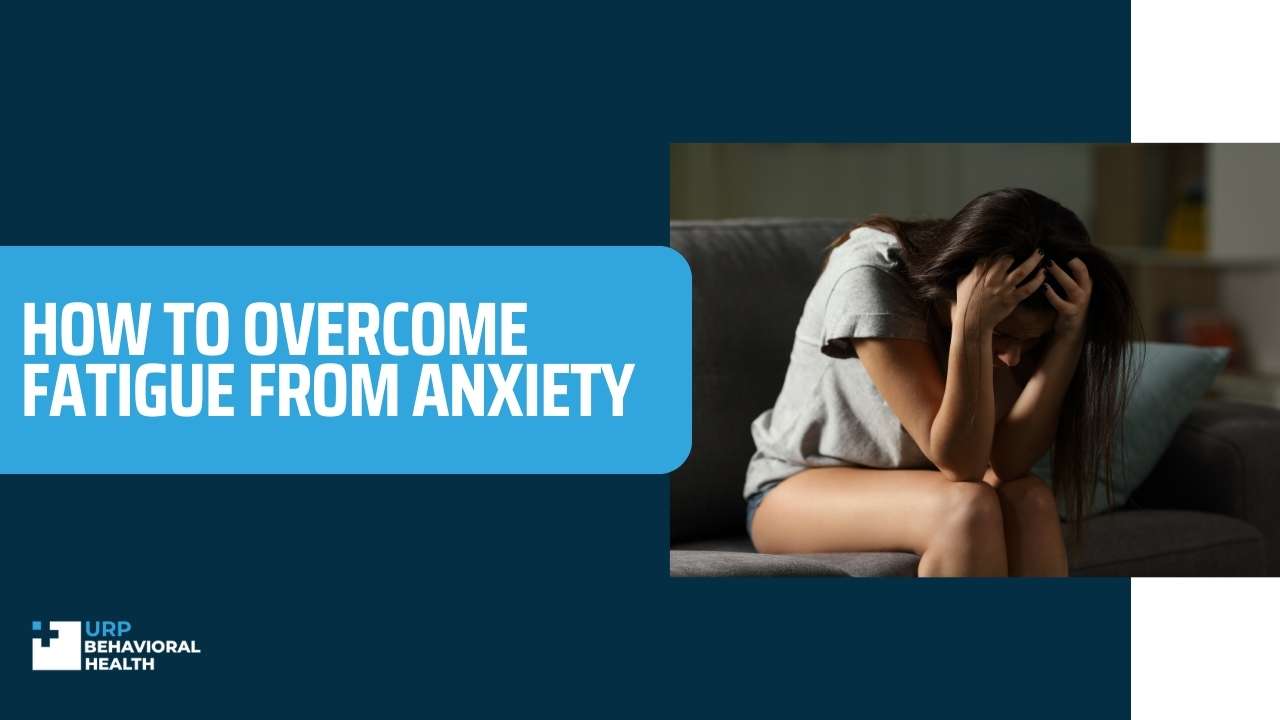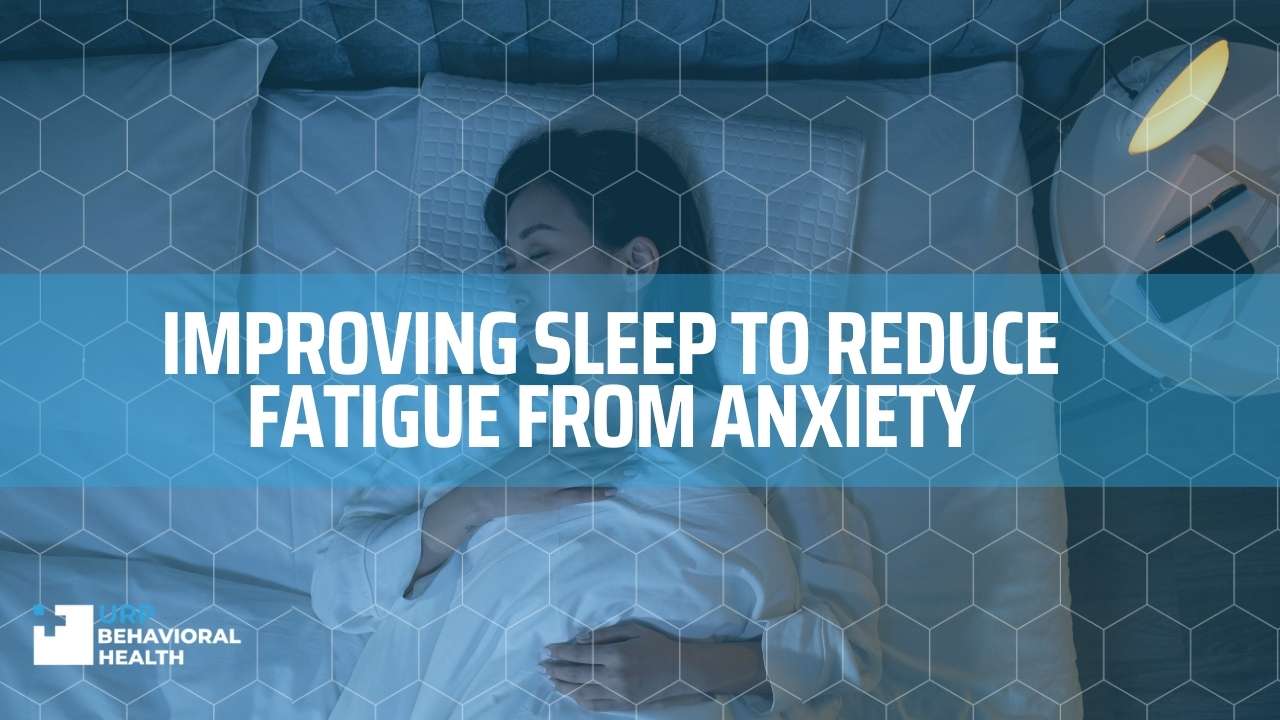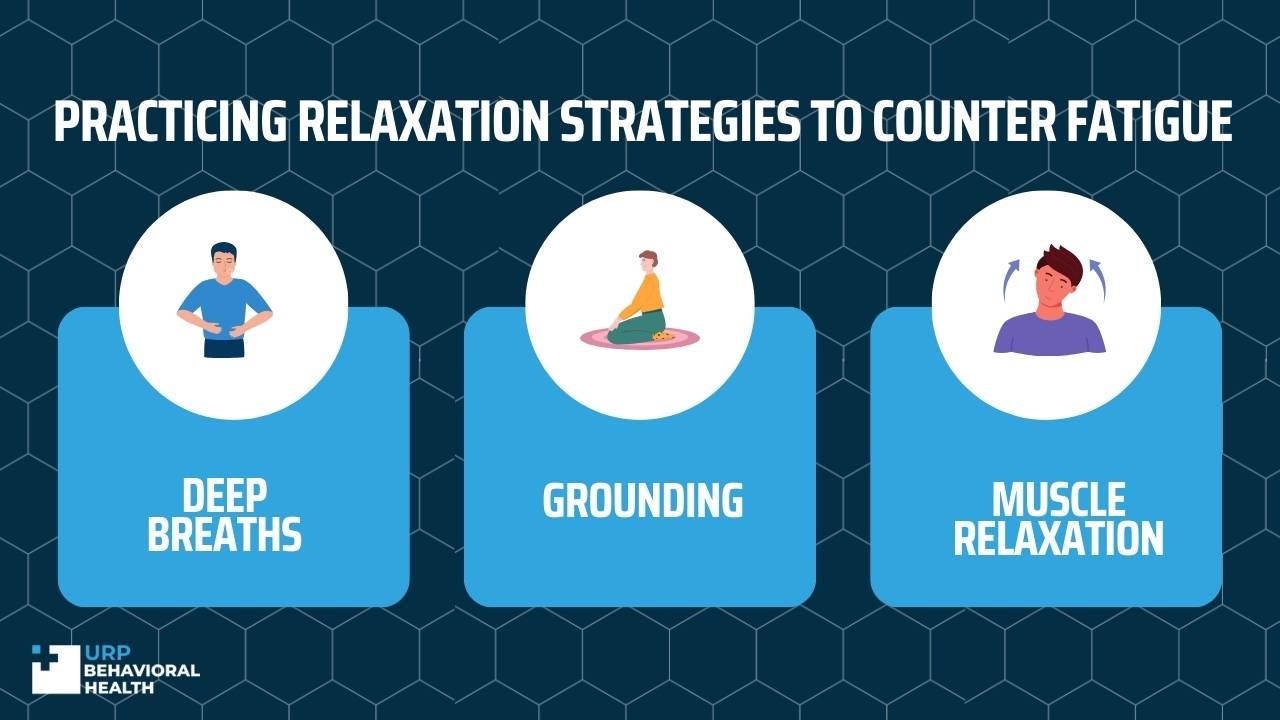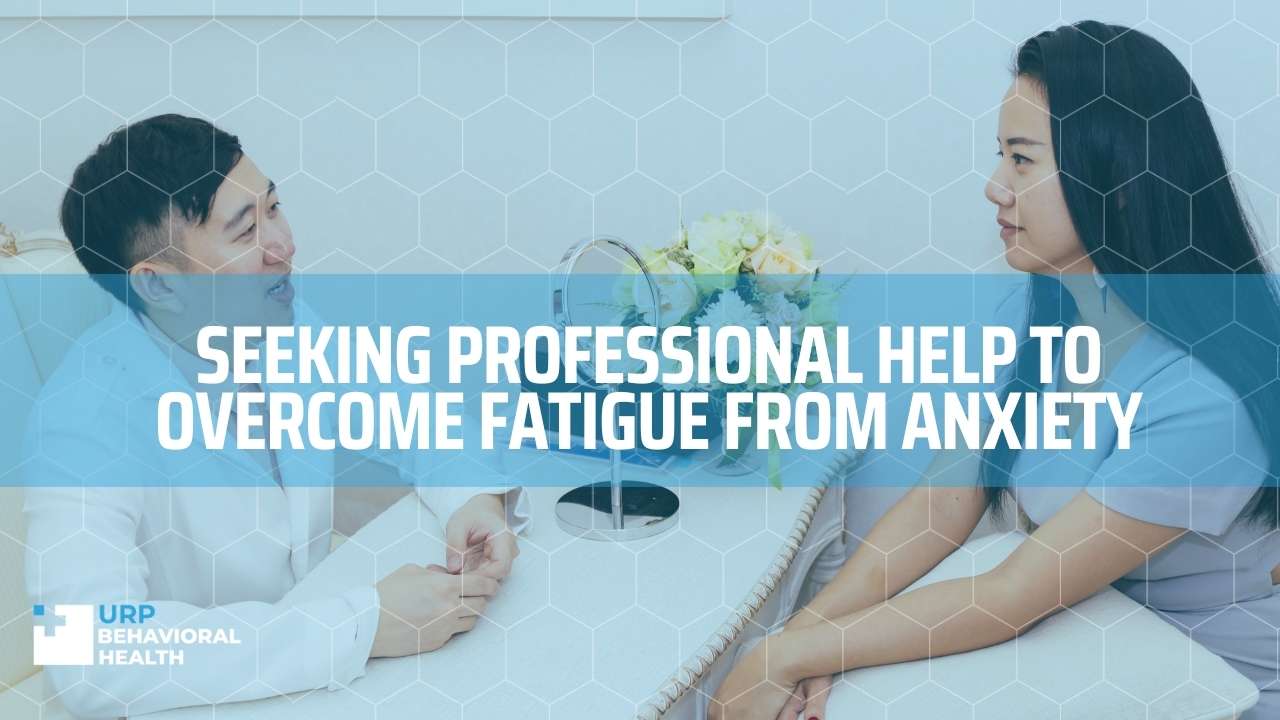
How to Overcome Fatigue From Anxiety
Do you ever feel like you’ve run a marathon on the days when you were very anxious? Perhaps the day before a major job interview or exam. Now imagine feeling like that every day because your anxiety won’t go away. If you can relate to this, then it’s possible that your anxiety is doing more than just affecting your nerves. And if that’s true, how do you fix it? Let’s have a look at the relationship between anxiety and fatigue and what you can do to overcome it.
The Relationship Between Anxiety and Fatigue
Research shows symptoms of neuroticism, depression, and anxiety are significantly associated with fatigue. That’s because many people who struggle with excessive anxiety, whether they meet the criteria for a disorder or not, report fatigue as a major symptom.
That’s because the two are correlated, and it’s not just anxiety causing fatigue: your fatigue can contribute to heightened feelings of anxiety as well. Being tired can lead to higher cortisol concentrations, which is the stress hormone increases anxiety levels. This can lead to a terrible cycle of getting more and more anxious and tired. Here are some of the factors that influence the relationship between anxiety and fatigue.
Adrenal Fatigue
Even if being anxious feels like a full-time job you do for free, that’s not the case. You lose energy whenever you worry about things, and this doesn’t refer to mental energy. Stress can trigger the release of adrenaline, activating your body’s fight or flight response. While you may be full of energy when that happens, once your adrenaline levels subside, you’ll feel drained and exhausted.
Muscle Tension
There are numerous studies showing how people with high levels of anxiety experience elevated muscle tension. And when your muscles stay tense for long periods of time, fatigue occurs as a result.
Poor Sleep and Naps
Research shows links between anticipatory anxiety and poor sleep quality. Not only does it contribute to fatigue, it can lead to excessive napping as a way to cope with a lack of sleep. However, napping excessively and/or at inappropriate times can make it harder to sleep at night, which further impacts sleep quality.

Improving Sleep To Reduce Fatigue From Anxiety
Anxiety’s main link to fatigue is its effect on sleep quality, so the best approach is to address the issue by tackling both anxiety and sleep problems to get some relief.
Sleep Quality
For starters, you need to work on your sleep hygiene. This means engaging in habits that improve your sleep health. For instance, making sure to limit screen time and eating before going to bed. Here are a few suggestions for breaking your anxiety-fatigue cycle by improving your sleep quality:
- Keep a set bedtime and rise time: Go to bed and wake up at the same time every day of the week (yes, on holidays and weekends, too). This ensures that you’re getting enough hours every night and don’t feel sleep-deprived the following day.
- Manage your routine so that you get at least 7 to 8 hours every night.
- Block out excess light and avoid electronics for at least half an hour before going to bed. The blue light your phone, computer, or TV screen can affect your circadian rhythm, so you’re alert and less likely to fall asleep.
- Limit caffeine intake in the afternoons and avoid it entirely during the evenings. Otherwise, you’re more likely to be restless and unable to fall asleep once it’s time for bed.
- Get some exercise during the day so that you’re expending energy and building sleep pressure. This makes it easier to fall asleep.
- Though it may seem like a good idea to have a drink before bed, it actually has the opposite effect. Alcohol can reduce how much REM sleep you get and lead to sleep disruptions.
Avoid Long Naps
While short naps can help energize your body during the day, excessive napping can have the opposite effect by lowering sleep quality at night. If you’re feeling tired during the day, take a short nap at least eight hours before going to bed. Experts say that 15 to 20 minutes is long enough to feel energized without compromising on getting a good night’s sleep.
Balanced Nutrition To Reduce Anxiety and Fatigue
Another factor with a link to both anxiety and fatigue is the food you eat. There’s evidence that links poor nutrition to higher anxiety and fatigue. In one analysis, researchers found an association between anxiety and a high-fat diet. However, medical experts also suspect that it could be the result of having a diet that’s deficient in essential nutrients that play a role in neurotransmitter function. Some of these include vitamin D, vitamin B12, zinc, magnesium, and omega-3 fatty acids.
That’s why mental health practitioners emphasize the importance of balanced nutrition as a way to control anxiety. This means limiting high-fat foods and adding fiber, mineral-rich leafy greens, and protein to your diet. Specifically, studies have found that the body relies on micronutrients like zinc, magnesium, and omega-3 fatty acids for maintaining brain health and potentially controlling anxiety symptoms.
Overcoming Fatigue With Nutrition
Though there are no foods that keep you from feeling tired, there are definitely some that can cause you to feel fatigued pretty quickly. If you plan to beat the anxiety-fatigue cycle, you’ll need to cut back on these types of foods.
Processed foods, with large amounts of refined sugars, lead to a sudden surge in blood sugar levels that drop equally fast. Similarly, friend foods and industrial seed oils can increase inflammation in the body, which can contribute to feelings of fatigue.

Practicing Relaxation Strategies to Counter Fatigue
Besides working on your sleep hygiene, lowering your anxiety levels is essential for addressing the anxiety-fatigue problem. An effective way to do this is by practicing relaxation techniques that signal your body to calm down.
Deep Breaths:
A basic technique is to take deeper and slower breaths from your abdomen. It’s highly effective because taking deeper breaths works well at activating your parasympathetic nervous system, which is responsible for helping you relax. While it takes practice, one helpful tip is to try the 4-7-8 method, in which you inhale for 4 seconds, hold your breath for 7, and exhale for eight.
Grounding:
This is a mindfulness strategy that involves using your senses to bring you back to the present. One such exercise is the 5-4-3-2-1 method, that uses all your senses. It requires you to acknowledge the following:
- Five things you can see, like the wall, desk, notebook, or mug in front of you.
- Four things you can touch, like the texture of your jeans or the keychain on your backpack.
- Three things you hear, like the sound of traffic or chatter around you.
- Two things you smell, like the shampoo you used this morning or a co-worker’s perfume.
- One thing you can taste, like the aftertaste of your morning coffee.
Muscle Relaxation:
Even if you’re unable to control your anxiety right away, you can still try reducing muscle tension so you feel less tired. Start by thinking of one part of your body, like your right arm, and focus on increasing its tension. Once that muscle becomes tense, let go so the muscle can relax. Move on to another part of your body until you’ve relaxed all your different muscles.

Seeking Professional Help to Overcome Fatigue From Anxiety
the above-mentioned strategies are a great way to try managing your anxiety and fatigue on your own. However, if you struggle with intense anxiety and fatigue that keeps you from maintaining a routine, then you should consider seeking professional help for the matter. Seeing a mental health practitioner can give you crucial insight into what you’re struggling with.
Psychotherapy: Trying CBT
The first line of treatment for numerous mental health concerns is often psychotherapy. It’s an evidence-based technique that can use a variety of different approaches. The most common, however, is cognitive behavior therapy. It’s built on the premise that your behaviors are affected by your thoughts and how those thoughts make you feel. So, the solution is to change how you think, which then alters your feelings and behavior.
It’s a combination of psychoeducation, cognitive restructuring, and coping strategies. So, your practitioner will increase your awareness about the anxiety you feel and how it contributes to fatigue. They’ll work with you to change unhelpful thinking patterns, and then they’ll also help you learn coping strategies for those times when you feel stressed.
How A Residential Treatment Program Can Help
If you’re struggling to follow the above-mentioned strategies to manage anxiety and fatigue, enrolling in a residential treatment program can help. Inpatient treatment at specialized facilities is designed with a holistic perspective, which involves a focus on overall well-being instead of just the mental aspect.
Here, you’ll work with a team of professionals, including a mental health practitioner, therapist, nutritionist, and others, to implement changes that alleviate both anxiety and fatigue at the same time. By targeting both, you’re likely to see positive outcomes much sooner than if you try tackling one issue at a time.
Conclusion
To sum it up, anxiety is closely linked to fatigue because of its effect on your sleep cycle. To start feeling better, you can work on your sleep hygiene, ensure a balanced intake of nutrients, practice different relaxation strategies, and, if needed, seek professional help. If you struggle with intense anxiety and need additional assistance, you can try enrolling in an inpatient treatment program.

